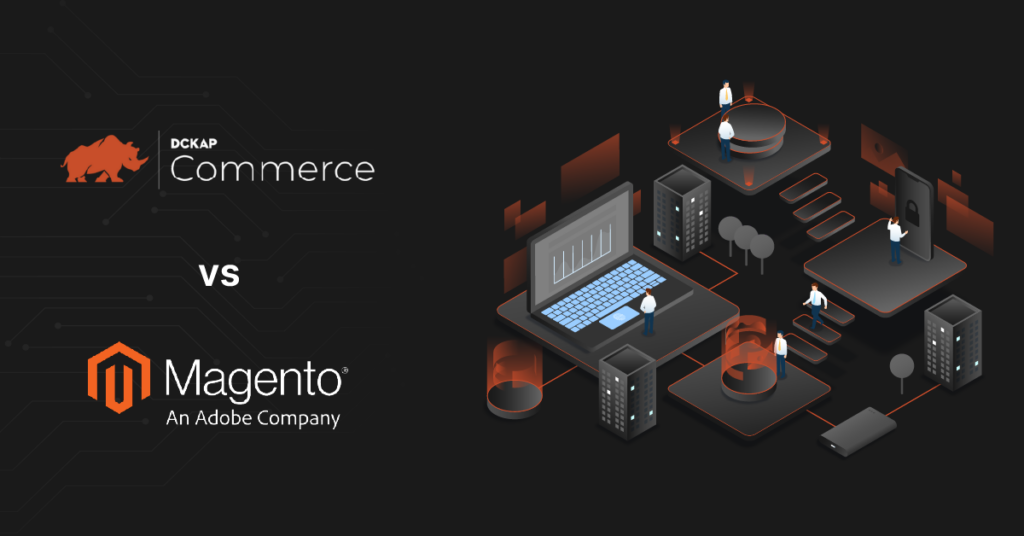Magento (now Adobe Commerce), is a popular customer-centric ecommerce platform for businesses across sectors, but known to be taxing in terms of required expertise and infrastructure. DCKAP Commerce, on the other hand, is a company-centric ecommerce platform built for B2B distributors.
In this blog we compare the two ecommerce platforms head-to-head.
Boasting speed and efficiency, DCKAP Commerce operates seamlessly with low server setup requirements, harnessing the power of the latest technology. DCKAP Commerce stands out for its remarkable speed and operational efficiency.
The platform seamlessly operates with self hosted setup, tapping into the latest technology to ensure a smooth and responsive user experience. This emphasis on streamlined performance contributes to the platform’s agility and responsiveness.
DCKAP Commerce leads the charge in B2B functionality by seamlessly integrating key features such as Company, Sales Rep, Quotes, Shopping List, and Dynamic Pricing directly into the platform. These features are intricately woven into the fabric of DCKAP Commerce, eliminating the need for users to install additional modules or extensions.
The result is a cohesive B2B experience where essential functionalities seamlessly coexist, contributing to a smoother and more integrated ecommerce environment.
On the other hand, Magento, known for its versatility, requires users to install additional modules or extensions to unlock various B2B functionalities. While this flexibility allows users to tailor their experience, it introduces an extra layer of complexity. Users must navigate through the installation and configuration of these additional components, potentially impacting the platform’s overall performance.
Eliminating the need for separate hosting arrangements, DCKAP Commerce includes hosting solutions as part of its comprehensive platform with simplified update and maintenance processes. This allows businesses to focus on strategic initiatives rather than getting bogged down in administrative intricacies.
DCKAP Commerce optimizes resource utilization, ensuring that B2B operations can be conducted smoothly without the need for significant server resources. This is particularly crucial for managing substantial product volumes.
Magento demands more significant server resources, potentially causing performance issues on lower-end hosting.
This can be a concern for businesses looking to streamline their B2B transactions. Magento, while robust, requires regular updates and maintenance tasks. This can be time-consuming, potentially diverting attention from core business activities.
DCKAP Commerce excels in providing a user-friendly interface, minimizing the learning curve associated with customization.
The platform is designed with intuitiveness in mind, ensuring that users, regardless of their technical expertise, can easily navigate and personalize their experience. This emphasis on simplicity facilitates seamless customization and enhances the accessibility of B2B operations within DCKAP Commerce.
Magento, renowned for its robust features, may present a steeper learning curve for users less familiar with technical intricacies.
Achieving deep customizations within the Magento platform often requires a level of technical expertise. This complexity can be a consideration for businesses where users may have varying degrees of technical proficiency.
In the B2B ecommerce arena, where efficiency and user-friendliness are paramount, DCKAP Commerce emerges as the preferred choice. Its integrated B2B features, reduced complexity, efficient resource utilization, and simplified maintenance processes position it as a slightly superior solution for businesses heavily invested in B2B transactions.
While Magento remains a powerful and versatile platform, businesses seeking a streamlined and comprehensive B2B experience may find DCKAP Commerce to be the optimal choice. The decision ultimately hinges on individual business needs, technical requirements, and the desire for a platform that seamlessly aligns with B2B objectives.

